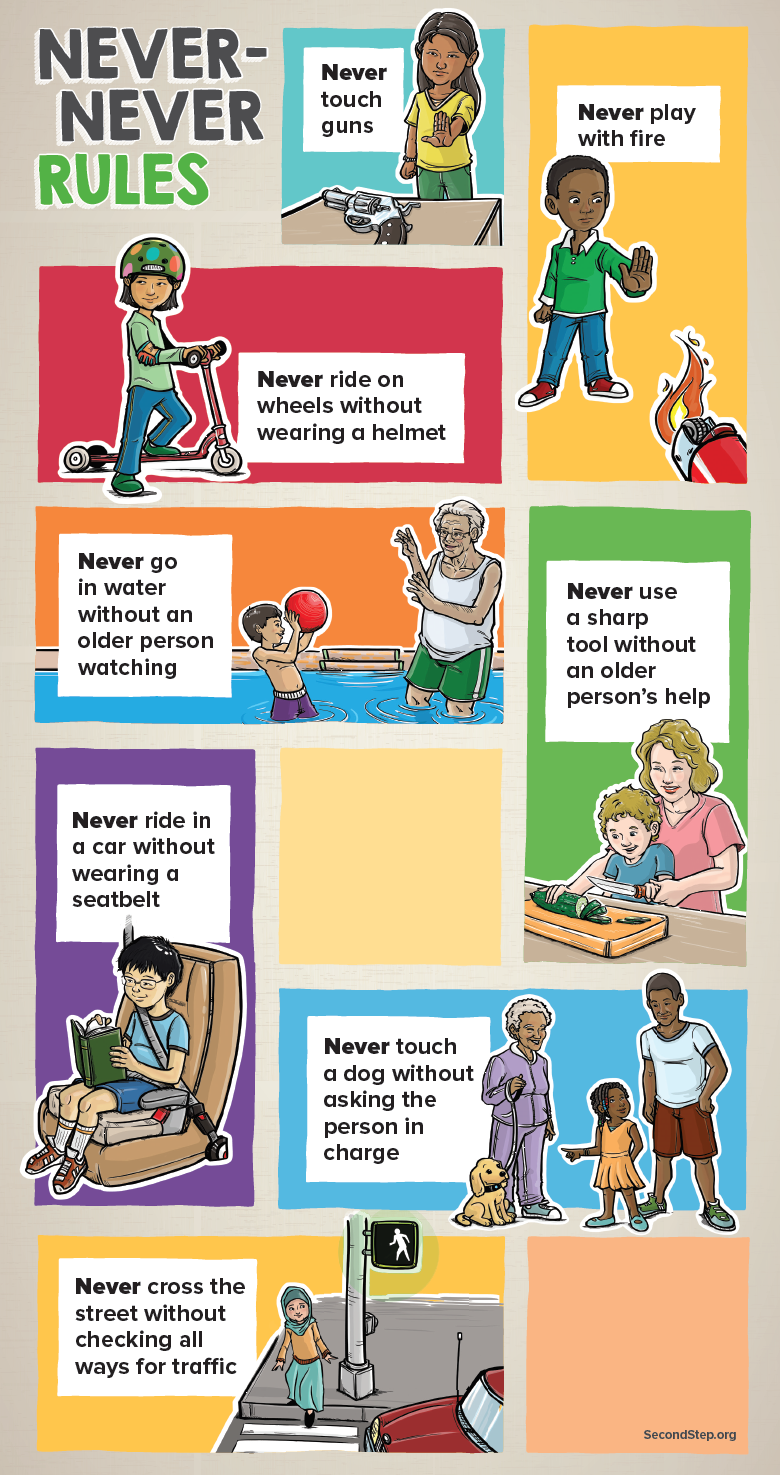Safe, Supported and Ready to Learn - Part 2
Safeguarding Our Children
Safeguarding Our Children
At UWCSEA safeguarding our students is a top priority. All children deserve to be safe and protected, and all adults need to know how to protect children and intervene if needed. Children can also learn self-protection skills, including how to report unsafe incidents or situations to adults.
Teaching children about staying safe uses, and builds on, social-emotional skills that are known to help protect children and promote resilience. In the Infant School, the Circle Solutions framework is used to implement our Personal and Social Education curriculum, ensuring a comprehensive approach for helping children stay safe and feel supported. The Second Step programme has been a wonderful resource to support these lessons.
We have been focusing on ways to stay safe and learning about different rules, ask your children about these rules! The first rule we talked about was the Never Never Rule followed by the three "R's" of staying safe - Recognise, Refuse, Report.


Another rule that helps keep children safe is the Always Ask an Adult First Rule, which is to always ask a parent or the bigger person in charge first before doing something, going somewhere, or accepting something from someone. Children learnt to identify grown-ups they can ask first. During Circles sessions I have talked about the difference between safe, unsafe and unwanted touches, and how to use assertiveness skills to refuse unsafe and unwanted touch. Safe touch makes you feel safe and loved. Unsafe touches hurt your body or your feelings. Unwanted touches might be safe, but you just don't want to be touched at that moment. Children are taught to be assertive and refuse, say no to any unsafe touch or touch they don't want.

This week we have introduced the Touching Rule - Another person should never touch your private body parts except to keep you healthy. Children learnt how to refuse assertively and report if someone breaks this rule and that it's never their fault if someone else breaks the rule. They practiced using Ways to Stay Safe when someone has broken the Touching Rule and also learnt it’s never okay to keep secrets about touching. During this lesson children learnt that private body parts are the parts that are covered by a swimsuit or underwear. Some children used 'pet names' for private body parts, while other children used anatomically correct language. (Research shows that knowing and using the correct anatomical terms enhances childrens' body image, self-confidence and openness, and discourages their susceptibility.) This handout from Second Step might be helpful as you talk to your children at home about this topic.
This week we have introduced the Touching Rule - Another person should never touch your private body parts except to keep you healthy. Children learnt how to refuse assertively and report if someone breaks this rule and that it's never their fault if someone else breaks the rule. They practiced using Ways to Stay Safe when someone has broken the Touching Rule and also learnt it’s never okay to keep secrets about touching. During this lesson children learnt that private body parts are the parts that are covered by a swimsuit or underwear. Some children used 'pet names' for private body parts, while other children used anatomically correct language. (Research shows that knowing and using the correct anatomical terms enhances childrens' body image, self-confidence and openness, and discourages their susceptibility.) This handout from Second Step might be helpful as you talk to your children at home about this topic.

In the coming weeks we will continue to review ways to stay safe and practice how to respond in unsafe situations. You are able to access Second Steps resources online at SecondStep.org with the activation key CPUK FAMI LYGK.
As always, please don't hesitate to be in touch if you have any questions.














